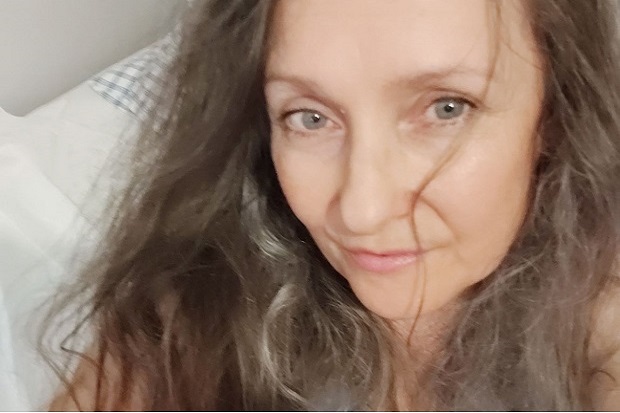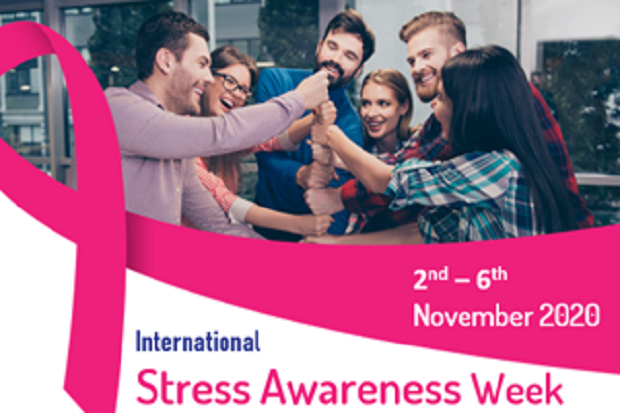
I am a content designer working in the Defra content team. It’s a very busy team which involves me working closely with colleagues from the Environment Agency, Natural England and the Animal and Plant Health Agency. I manage content on both Defra’s Intranet site and our GOV.UK platform, with the work ranging from publishing Covid-19 guidance to, most recently, amendments to the Environment Bill 2020.
I enjoy my work and it’s an important job; it requires a high level of concentration and often working to tight deadlines. The need for accuracy goes without saying as much of our work is ‘high profile’ and it’s important that I get things right as the department’s reputation is at stake.
Being stress 'aware'
I first became aware of stress in my early twenties when I worked for a daily newspaper, it was a hectic environment with a daily hard deadline to meet and last-minute rushes were a common occurrence. I loved my job and the buzz it gave me, so stress wasn’t really on my radar. It crept up on me though, I started to suffer from headaches, neck pain, muscular tension, a regular upset stomach and problems sleeping, but still I didn’t really make any connection to my stress levels.
I then started to experience emotional reactions, I sometimes felt irritable and would have sudden feelings of anxiety and panic. I also started to have problems with my concentration, my memory and ability to make fast decisions; this was clearly becoming a problem working in such a busy office with the clock against you every day.

It all came to a head when I experienced a full-blown panic attack, it was utterly terrifying, and I was convinced I was dying. Lucky for me a colleague knew exactly what was happening and reassured me I was going to live. I was packed off to see the doctor who checked me over and confirmed I was suffering from stress. After that, I became very aware of how I was feeling and learned how to look after my emotional wellbeing as well as my physical self.
I have worked remotely for many years now, so the pandemic hasn’t really changed that for me, but it has taken away the opportunity to go into the office on occasion, to be around others, which is a shame.
Keeping in touch is key when working remotely
Working remotely can sometimes make you feel a little isolated, so I stay in contact with my teammates via channels such as Slack and make time to ask them how their day is going. I find this helpful and have suggested to my manager that a ‘tea break’ via Zoom or Teams once a week might be a great way for us to check in with each other, chat and share any worries.

These days I am always aware of my stress levels and take a minute to really check in with myself to be aware of how I am feeling. I have found ways to keep things as calm as possible such as creating a fixed workplace in my home. I find this helps keep work and home life separate, which is important as they can easily merge, and this can add to stress levels.
I also think when it comes to workload it’s really useful to look ahead and plan my day/week; it’s also important to manage expectation and try to be honest if I need extra time or help; this isn’t always possible but does help things run smoothly.
Doing such a sedate job has made me value physical activities far more than before. Most days I get outdoors, regardless of the weather; I love hiking and it’s a great way to stay fit. I also enjoy martial arts training, dancing and yoga, all of which are perfect ways to stay active, have fun and prevent stress.

I also try to get enough sleep, eat healthy foods and stay hydrated. I meditate every day and have done for several years, it’s a great practice and amongst other things has given me the mental control to stay calm when I need to. I found it hard at first but find it effortless now, it is so worth the work and I would highly recommend it.
Taking my mental health seriously - the importance of routines
I take my mental health very seriously and feel it should be treated with the same level of care we take with our physical health. Stress can creep up on you and recognising it and how it presents is often tricky so familiarising yourself with the signs of stress is a good plan in helping to control it before things get out of hand.
It’s why I have created my routines, taking time and care to look after your emotional wellbeing can often prevent problems with stress before they even start. Defra is a supportive place to work and there is lots of useful advice and guidance on our intranet as well as plenty of people to talk to if you need to. Defra has also provided free access for all staff to the Headspace tool for a limited period.
I would really recommend you take a look at some of the guidance on emotional wellbeing. There is lots out there, it’s informative and will help you get into good habits that support your overall wellbeing. Have a look at Headspace too, it offers sessions that can help you focus at work, improve your sleep, deal with stress, anxiety and exercise.
Visit the NHS Every mind matters website
Try the Headspace tool
Find out more about International Stress Awareness Week
Recent Comments